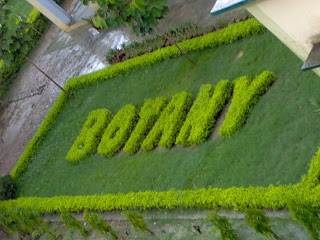Algae:
Simple aquatic plants possessing chlorophyll.
Don’t Miss:Fascinating facts about Algae
Angiosperm:
Flowering plants with seeds enclosed in fruits.
Annual:
A plant which lives for only one season.
Biennial:
A plant that lives for two seasons.
Chlorophyll:
The green pigments in green plants which help in the manufacture of food.
Read Also: Chloroplasts
Cryptogams:
Flowerless plants.
Epiphytes:
A Plant that grows upon another plant but does not derive nourishment from it.
Endosperm:
The food store in a seed outside the embryo.
Flora:
The whole assemblage of the plant life of a region.
Fungi:
simple plants without chlorophyll.
Gymnosperms:
Plants with naked seeds i.e. seeds not enclosed in fruits.
Humus:
Decaying plant or animal matter in the soil.
Hydrophyte:
A plant adopted from growth in water or in a wet soil.
Hydroponics:
A system of growing plants through water culture methods.
Hydrotropism:
Response of plant organism to moisture or water.
Parasite:
An organism that derives its nourishment from another living organisms.
Perennial:
A plant that lives for more than two years.
Phanerogams:
Flowering plants.
Photosynthesis:
A process in green plants with which food is manufactured from carbon dioxide and water in the presence of light.
Read Also: Photosynthesis
Phototropism:
An automatic response of plant organism to light.
Pollination:
The process of transference of pollen from another to stigma of flowers.
Protoplasm:
The living matter of which organism are formed.
Rust:
A disease caused by the fungus in wheat plant.
Saprophytes:
An organism living on dead or decaying organic matter.
Smut:
A disease found in the cereals caused by a fungus.
Thallophyte:
A group of plant having simple plant body without root, stem and leaves e.g. algae, fungi, bacteria etc.
Xerophyte:
A plant adopted to live in dry place.
Related Posts:
